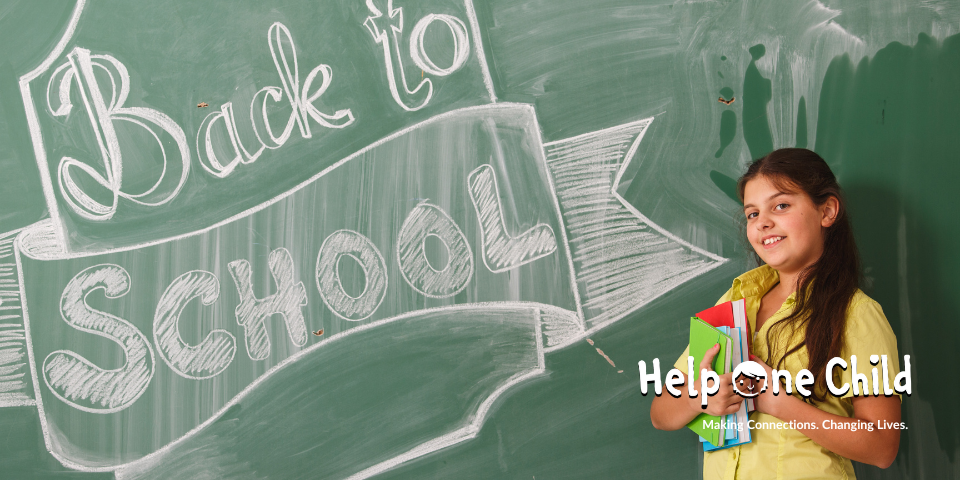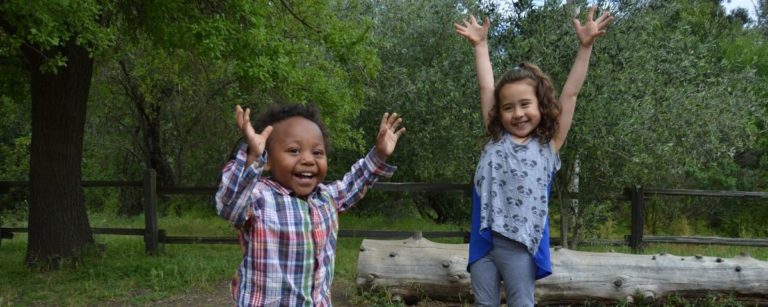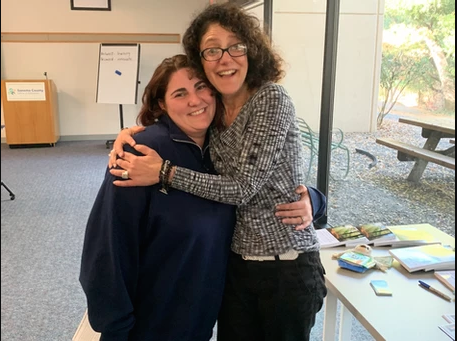Setting Your Child’s School Year Up for Success
By Erin Bouchard
School can represent a lot of anxiety and overwhelm for us and our kids from hard places and yet many of them thrive and do just fine. Sometimes it is about managing our own parental anxiety and other times, the focus is on empowering our kids as we approach a new school year. The uncertainty of the school year starting, the unknown of who their teacher will be and which friends will be in their class can overwhelm our children and we worry, too.
Try these three pointers to help kids have a good school year!
1. Talk positively about your child’s teacher, principal and school.
For kids from hard places who often struggle with transitions, knowing who their teacher is ahead of time can be very helpful. My kids have attended two different public schools. One school left it until the first day to tell the kids who their teachers were, and the other let them know on the last day of school who their teacher would be for next year. When this information is available will be up to the school timeline.
As soon as we know who their teacher is, we can talk positively and enthusiastically about them. If we’re anxious or nervous about our child having a certain teacher, they will pick up on that as well. Overhearing us talking negatively about their teacher or their school can increase any anxiety they feel.
Similarly, if we talk positively about their school, principal, teacher, and upcoming school year, we’ll help our child be more excited about the coming year. We can share our expectation that the school year is going to be awesome. We also have an opportunity to create space to listen to our child’s expectations, hopes and thoughts about the upcoming school year, experiences in school, validating their feelings and attuning to their needs.
2. Send a letter to your child’s teacher.
I like to start the school year off with everyone on the same page. I will send a letter to their teacher the first week of school outlining a little bit about their story. Our kids are adopted, so I briefly explain what age they moved into our house, when they were adopted and what that means for them. I do this in a way that is respectful of their story and their right to share what they want to share, while balancing giving the teachers the information they need to have a successful school year. I give the teacher some strategies that we have found useful at home for some of the behaviors they are most likely to see in the classroom.
I ask them to alert me to any family related projects that are happening at school so I can best navigate that with my child and can have discussions around the assignment at home. And I ask them to let me know in advance as much as possible about any assemblies, substitutes or any other significant transitions in the classroom. I remind them that kids who have experienced early trauma often struggle and need extra help understanding and advance cues to prepare for any changes. I thank them for being our child’s teacher and let them know that I want them to be successful this school year. I give them my cell number and email address, encouraging them to keep in contact with me throughout the year.
3. Create good communication between the teacher and parents.
Creating good communication between parents and teachers is so important. I have found that my kids do better when they know that the teacher and I talk and get along. Remember that one of the most important things that we can give our kids is felt safety, the feeling of being safe. To them, a teacher is a stranger, someone who they must develop trust with first, to later establish felt safety. The more our kids see us interact and talk with their teacher, the more that felt safety can develop. If they feel safe and secure with us, and they see us feel safe and secure with their teacher, they can begin to feel safe and secure with their teacher. If age appropriate, involve your child in problem solving and strategies for success, too.
Staying in good communication with their teacher also alerts us to any problems or struggles in the classroom early. Then we can support the teacher and offer suggestions for strategies. Oftentimes teachers are very busy in the classroom. When speaking with them about our child, it’s helpful to acknowledge that, and then to show them how our strategies will save them time and help their days go smoother.
Heading into this new school year, help your child be as successful as possible!
Consider how you can set them up for success, even before the school year begins. Plan how to help them develop a relationship with their teacher so they can experience felt safety and feel secure while at school. Remember to thank your child’s teacher and approach the relationship like a partnership for your child’s success.
Erin Bouchard. Author. Speaker. Advocate. Educator. Erin founded Trauma-Informed Parenting because she’s passionate about helping foster and adoptive parents understand early trauma and attachment. Erin Bouchard and her husband, Joel, have been foster parents since 2011. They adopted out of the foster care system in 2014. They are kinship, foster, adoptive, and bio parents. Over the years Erin has learned a lot through their experiences with early trauma. She teaches and educates about connection, attachment, trauma, grief, and loss. Her first book, Trauma-Informed Parenting is on the way! Help One Child appreciates her collaboration and contributions with blog articles, video usage permission for support group curriculum, and podcast guest appearances









